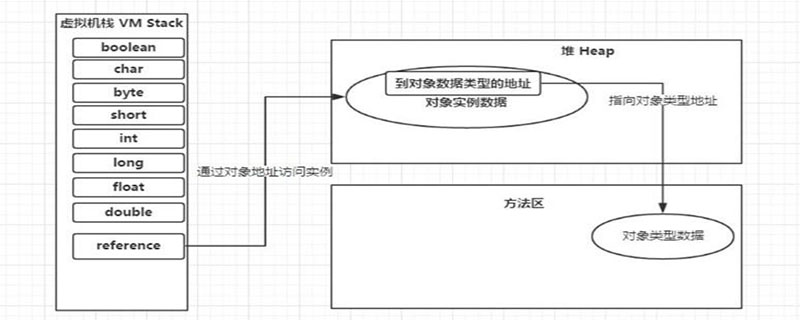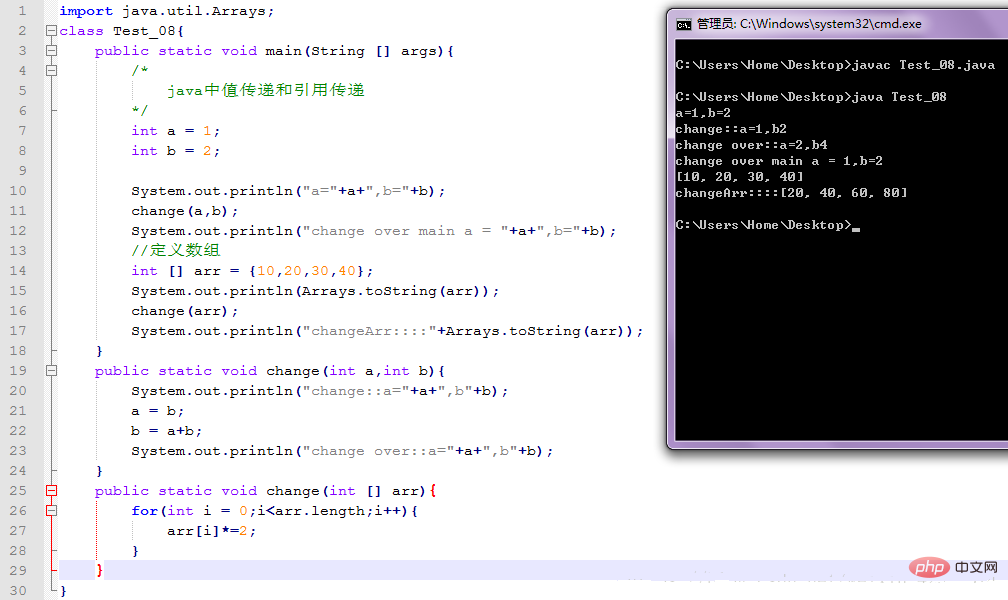

Value transfer refers to the transfer of basic data types in methods, and reference transfer refers to the transfer of reference data types in methods.
For example, as shown in the program code below: (Recommended Learning: Web front -end video tutorial )

Note: int belongs to the basic data type, so when passing and referencing in the method, the value of the variable will not be changed
And arr belongs to the array, It is a reference data type, so when a method is referenced, what is actually passed is the physical memory address of the array in the heap memory. Operations on the array in the method will affect the values inside the array and change
Reason:
In java, when the basic data type is passed as a parameter, it is called value passing. The value itself is passed.
Value passing: value Changes in this method are local variable changes
It has no effect when the method is exited (the basic data type passed in the method is a local variable)
In java, the method parameters and reference data types are passed in the physical memory address value. When the value inside the array is changed in the method, the physical memory address of the array is not changed, so when returning to In the main method, the array still points to the original address.
When the address value of the arr array in memory is passed in, the continuous address in the heap memory changes, which can affect the entire array
Special case: String / basic data type packaging class , although they are all reference data types, when parameters are passed, they pass values
The above is the detailed content of The difference between passing by value and passing by reference. For more information, please follow other related articles on the PHP Chinese website!
 What is the difference between pass by value and pass by reference in java
What is the difference between pass by value and pass by reference in java
 What are the uses of vue.js slots?
What are the uses of vue.js slots?
 What are the sorting methods?
What are the sorting methods?
 How to register a business email
How to register a business email
 what node can do
what node can do
 What are the front-end mvvm frameworks?
What are the front-end mvvm frameworks?
 Usage of parseInt in Java
Usage of parseInt in Java
 Why can't I delete the last blank page in word?
Why can't I delete the last blank page in word?
 Check port occupancy windows
Check port occupancy windows